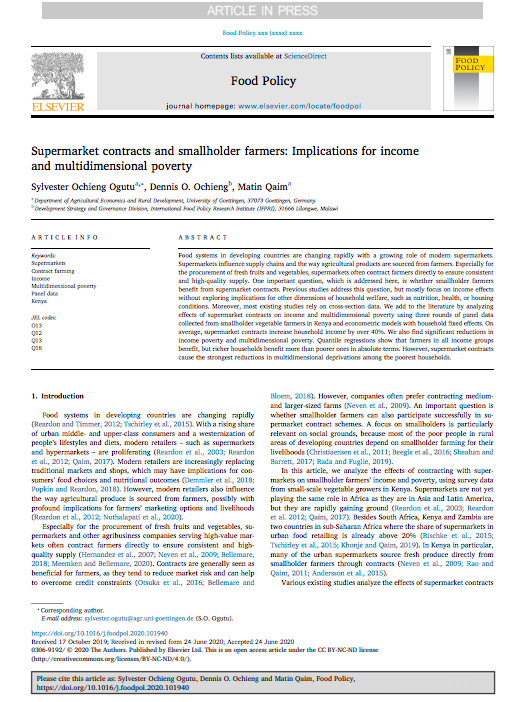Supermarket contracts and smallholder farmers: Implications for income and multidimensional poverty

ABSTRACT
Food systems in developing countries are changing rapidly with a growing role of modern supermarkets. Supermarkets influence supply chains and the way agricultural products are sourced from farmers. Especially for the procurement of fresh fruits and vegetables, supermarkets often contract farmers directly to ensure consistent and high-quality supply. One important question, which is addressed here, is whether smallholder farmers benefit from supermarket contracts. Previous studies address this question, but mostly focus on income effects without exploring implications for other dimensions of household welfare, such as nutrition, health, or housing conditions. Moreover, most existing studies rely on cross-section data. We add to the literature by analyzing effects of supermarket contracts on income and multidimensional poverty using three rounds of panel data collected from smallholder vegetable farmers in Kenya and econometric models with household fixed effects. On average, supermarket contracts increase household income by over 40%. We also find significant reductions in income poverty and multidimensional poverty. Quantile regressions show that farmers in all income groups benefit, but richer households benefit more than poorer ones in absolute terms. However, supermarket contracts cause the strongest reductions in multidimensional deprivations among the poorest households.